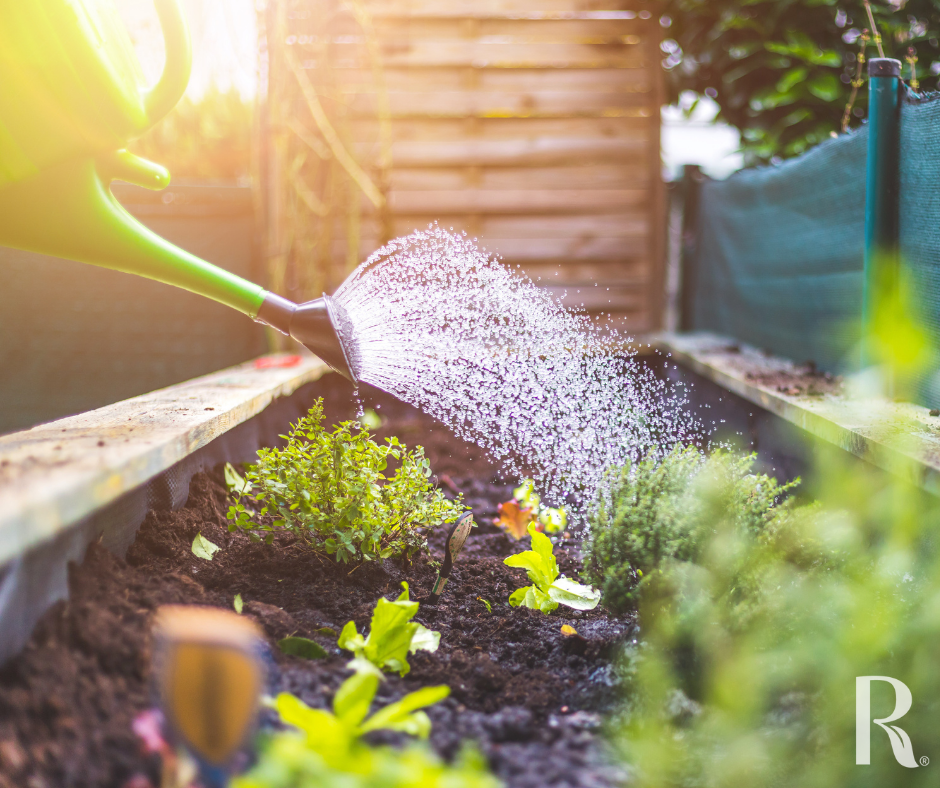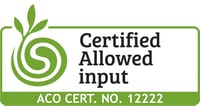Why garden organically?
Because you are what you eat! is a good enough reason for me.
But it also means that your produce will be more nutrient dense, more flavoursome, hardier, and healthier.
Why would you want chemicals in the vegetables, fruit, and herbs that you eat?
It’s not just about edibles, it’s about a healthy environment surrounding you, your family and your local fauna, birds, and beneficial insects.
Your soil will be healthier too. The soil microbiome and all the millions of organisms that exist within your soil profile, macro and micro, including worms will thank you.
Definition:
The basic ethos of organic gardening is choosing not to use synthetic fertilisers, pesticides, herbicides, or other synthetic soil additives that can upset the balance of the ecosystem. It’s all about taking a holistic approach to your garden and gardening practices. Gardening to create a balanced and biodiverse system that keeps itself in balance is the long-term aim.
Always look for one of the Australian certification logos on any gardening products, pesticide or disease sprays and fertilisers that you are purchasing. This way you know it is truly organic and has passed all the rigorous certification guidelines.
From the bottom up with organic living soil.
- Soil additive choices: organic allowable inputs. Compost, animal manures, worm castings
- Fertiliser choices: pelletised manure, blood and bone, rock dust minerals, fish emulsion
- Mulch choices: lucerne, pea straw and sugarcane are great mulch choices because when they break down, they add valuable nutrients to the soil and help to condition poor soil profiles.
The above is an ongoing process and amendments need to be added to the soil throughout the year.
Rocky Point Products that tick this box.
Cow Manure Plus, ActivGrow Soil Improver, ActivGrow Fertiliser Pellets, Sugar Cane Mulch and more!
Seaweed  This is the wonder ingredient that all organic gardeners have in their garden shed.
This is the wonder ingredient that all organic gardeners have in their garden shed.
Why? Seaweed is invaluable as a plant and soil health tonic. Seaweed has been scientifically proven to strengthen plant cell walls, making them more drought, disease, cold, heat and pest resistant. Plants that are put under stress bounce back far more quickly when seaweed has been regularly applied to their foliage and root systems. It has been shown that plants also take up nutrients and water more effectively in the presence of seaweed.
Seaweed also has an amazing effect of soil micro-organisms and beneficial soil fungi.
Seaweed can be readily purchased as a powder or liquid that can be mixed with water and applied as a foliar feed or directly to the soil profile and plant roots.
Pest and disease control:
- Fungal diseases: copper-based sprays, wettable sulphur, bicarb and milk sprays.
- Sap sucking insects: botanical plant oils, neem-based sprays, pyrethrum, chilli and garlic sprays and insecticidal soap sprays.
- Chewing insects: Bacillus thuringiensis, pyrethrum, neem-based sprays.
- Biological control or integrated pest management as it is often called is another option. This is where you use predatory insect species to help fight pest insect outbreaks. Insects such as lacewings, ladybeetles, predatory mites, and wasps.
- DIY: You can even make your own from a few simple ingredients from your home; just have a look online.
Weed control:
Nonanoic acid, vinegar-based sprays, pelargonic acid, solarisation, mulching, steam, and flame weeding are all organic options for weed removal. You can always opt for the hand pulling method too, if practical.
Looking for more great gardening info like this? Subscribe to the Better Earth Program to receive Better Earth Secrets Magazine direct to your inbox each season.
_MEB.png?width=842&height=596&name=RP_HorizontalColour(R)_MEB.png)




